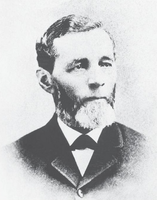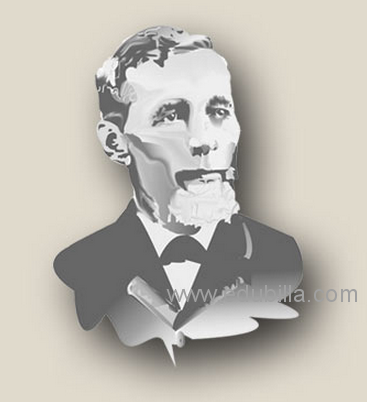










Benjamin Tyler Henry was an American gunsmith and manufacturer. He was the inventor of the Henry rifle, the first reliable lever-action repeating rifle.
Benjamin Tyler Henry was born in 1821 in Claremont, New Hampshire. There he served his apprenticeship with two local gunsmiths, J. B.. and R. B. Ripley. Henry finished his requirements to become a master mechanic at the Springfield Armory in 1842. He stated that he was employed for the purpose of retooling the factories when Springfield became convinced of the necessity of manufacturing guns with interchangeable parts. He went to Windsor, Connecticut, to work for Robbins & Lawrence Company who were starting to produce the U. S. Model 1841 Rifle (Mississippi). In 1854 he went to work for William Smith, whom he had known while at Springfield Armory.
William Smith had always dreamed of a repeating firearm. His earlier experiments included a firearm that fired under water. This idea was patented in 1839, and while the idea was sound, the firearm was impractical. In 1859 Smith came up with the idea of a self-loading pistol using a brass case rather than a paper one.
The brass case proved too tough for the shell extractor, so Smith developed the idea of a younger partner, Daniel Wesson, for a self-contained cartridge wherein the bullet, powder, and primer were all in one, and the extractor was unnecessary. Firearms with these cartridges were produced under the company name of Smith & Wesson. Glory faded fast. By 1855 Smith & Wesson was sold to a group of investors which included Oliver Winchester, a shirtmaker. They formed the Volcanic Firearms Company and moved the tools and dies to New Haven.
The Volcanic Firearms Company tried to revive the idea of the lever action principle, but due to stockholder squabbles and dashed expectations regarding the capabilities of the firearms themselves, they were forced into insolvency by 1857.
Winchester, unwilling to let the idea die, formed the New Haven Firearms Company. Winchester hired Henry to work the bugs out of the self-loading firearm. Major problems that had to be addressed included the design of the conical bullet and the extractor, both of which could cause the firearm to misfire and jam. Henry took on the challenge with an effort that must have been born of his enthusiastic desire to leave his mark on the firearm world. This he would do!
Benjamin Henry was responsible for the ultimate design and development of the Winchester repeater. It was he who perfected the mechanism and heavier frame that could withstand the pressure of a contained charge from a large caliber cartridge. Henry also adopted an idea from a Frenchman by the name of Flobert for a self-primed cartridge. Using his and Flobert's ideas, Henry developed the rim-fire cartridge that was the predecessor of today's 22-caliber rim-fire cartridge.

